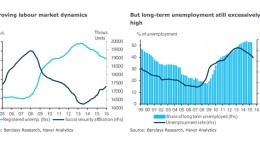Bank Of Spain To Calculate Provisions On Expected Rather Than Incurred Losses
The Bank of Spain plans to change the method for calculating provisions in H1 2016, in advance of the European Commission’s new accounting regulations due to be implemented in 2018. Under the new rules elaborated by the International Accounting Standards Board (IASB), provisions will be calculated based on the expected loss in credit operations and not on the loss already incurred, as has been the case up to now.










